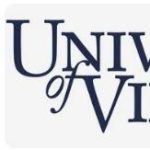The Virginia Commonwealth University School of Medicine was founded in 1838 as the Medical College of Virginia. It was the first medical school in the state and one of the first in the country. It was initially located on 12th Street in Richmond, Virginia and was affiliated with Hampden-Sydney College. The school’s first graduating class consisted of five men, who received their degrees in 1841. Over the next few decades, MCV grew steadily, expanding its faculty and curriculum to include new areas such as surgery and obstetrics. In 1893, MCV became part of the newly formed University of Richmond, and by 1910 it had outgrown its original building. In 1913 it moved to a larger facility on East Broad Street which was renamed MCV Hospital in 1914. Through this period, MCV continued to expand its curriculum to include specialties such as pathology and pediatrics. In 1960, MCV merged with Richmond Professional Institute (RPI) to form what is now known as Virginia Commonwealth University (VCU). VCU has since become one of the premier research institutions in the country with an expansive medical school that includes multiple research centers, a comprehensive hospital system, and numerous graduate programs. VCU School of Medicine has continued to grow over the years with new buildings being constructed and more students enrolling each year. The school has also made great strides in improving healthcare for underserved populations both locally and globally through its outreach programs.
Virginia Commonwealth University, abbreviated as VCU, is one of the top-ranked U.S. medical schools located in Richmond, VA. Keep reading to see admissions application information including average GRE scores, admissions selection factors and dual degree programs of Virginia Commonwealth University.
PO Box 980565
Richmond, VA 23298-0565
(804) 828-9629
Admissions E-mail: somume@hsc.vcu.edu
Web site: http://www.medschool.vcu.edu
Electronic application: http://www.admissions.som.vcu.edu
Fall 2008 Admissions Information
AMCAS application accepted? Yes
Earliest application date: 06/01
Application deadline: 10/15
Oldest MCAT considered: 2004
Application fee: $80
Director of admissions: Agnes L. Mack
Does this school ask for a secondary application as part of the admissions process? Yes
This school requires undergraduate work in these subjects in order to apply: biology, biology/zoology, English, organic chemistry, physics, mathematics, demonstration of writing skills, general chemistry
Is a personal interview required for admission? Yes
Are interviews conducted at the medical school? Yes
Acceptance notice to regular application for the 2007-2008 first-year class:
-Earliest date: October 15
-Latest date: August 4
Applicant’s response to acceptance offer for the 2007-2008 first-year class:
-Maximum time in weeks: 2 weeks
-Does the school consider requests for deferred entrance? Yes
-Deposit to hold place in class: $100
-Deposit due: At time of acceptance offer
-Deposit refundable prior to: May 15
-Starting month for the class of 2007-2008: August
Early Decision Plan application period for the 2007-2008 first-year class:
-Does the school have an Early Decision Plan (EDP)? Yes
-EDP application period begins: June 1
-EDP application period ends: August 1
-EDP applicants notified by: October 1
Fall 2005 Admissions Statistics
Virginia Commonwealth University School of Medicine is one of the most competitive medical schools in the United States. The admissions statistics for VCU School of Medicine are impressive. The school has an acceptance rate of 4.3%, meaning that only 4 out of every 100 applicants are accepted into the program. Of those accepted, approximately 85% graduate within four years, and 95% graduate within five years. Furthermore, the average MCAT score for accepted students is 514, which is significantly higher than the national average MCAT score of 505. Notably, admission to VCU School of Medicine is highly selective and competitive; therefore, applicants must demonstrate strong academic performance and have a commitment to excellence in research and healthcare in order to be admitted.
| Applied | Interviewed | Accepted | Enrolled | |
| Total: | 4,775 | 877 | 373 | 184 |
| In-state: | 712 | 380 | 188 | 104 |
| Out-of-state: | 4,063 | 497 | 185 | 80 |
| Women: | 2,304 | 432 | 185 | 93 |
| Minorities: | 1,541 | 272 | 123 | 65 |
| International: | N/A | N/A | N/A | N/A |
Acceptance rate: 7.8%
GPA
Average undergraduate GPA: 3.5
MCAT
Overall score (composite): 9.8
Verbal reasoning: 9.4
Physical sciences: 9.8
Biological: 10.2
Writing: P
Undergraduate Majors
Biological sciences (biology, microbiology, zoology, etc.): 42%
Physical sciences (biochemistry, chemistry, engineering, etc.): 16%
Non-sciences (sociology, economics, English, etc.): 27%
Other health professions (nursing, pharmacy, etc.): 2%
Mixed disciplines and other: 13%
|
Combined Degree Programs
Combined degree programs offered: M.D./Ph.D., M.D./M.P.H., M.D./M.H.A.
Does the school have a combined college/M.D. program? Yes
Number of years to complete combined college/M.D. program: 8 years
Web site for combined college/M.D. program: www.vcu.edu/honors/guaranteed.html
Selection Factors
Details on the policies, preferences, criteria, factors and procedures used in the M.D. admission process:
(Data appear as originally submitted by this school)
Applicants are selected on the basis of their professionalism and academic skills. Medically related experiences, academic performance and the interview are important. The school gives preference to residents of Virginia and does not discriminate on the basis of age, race, sex, creed, national origin, or handicap. Applicants must be citizens or permanent residents of the United States or Canada.








